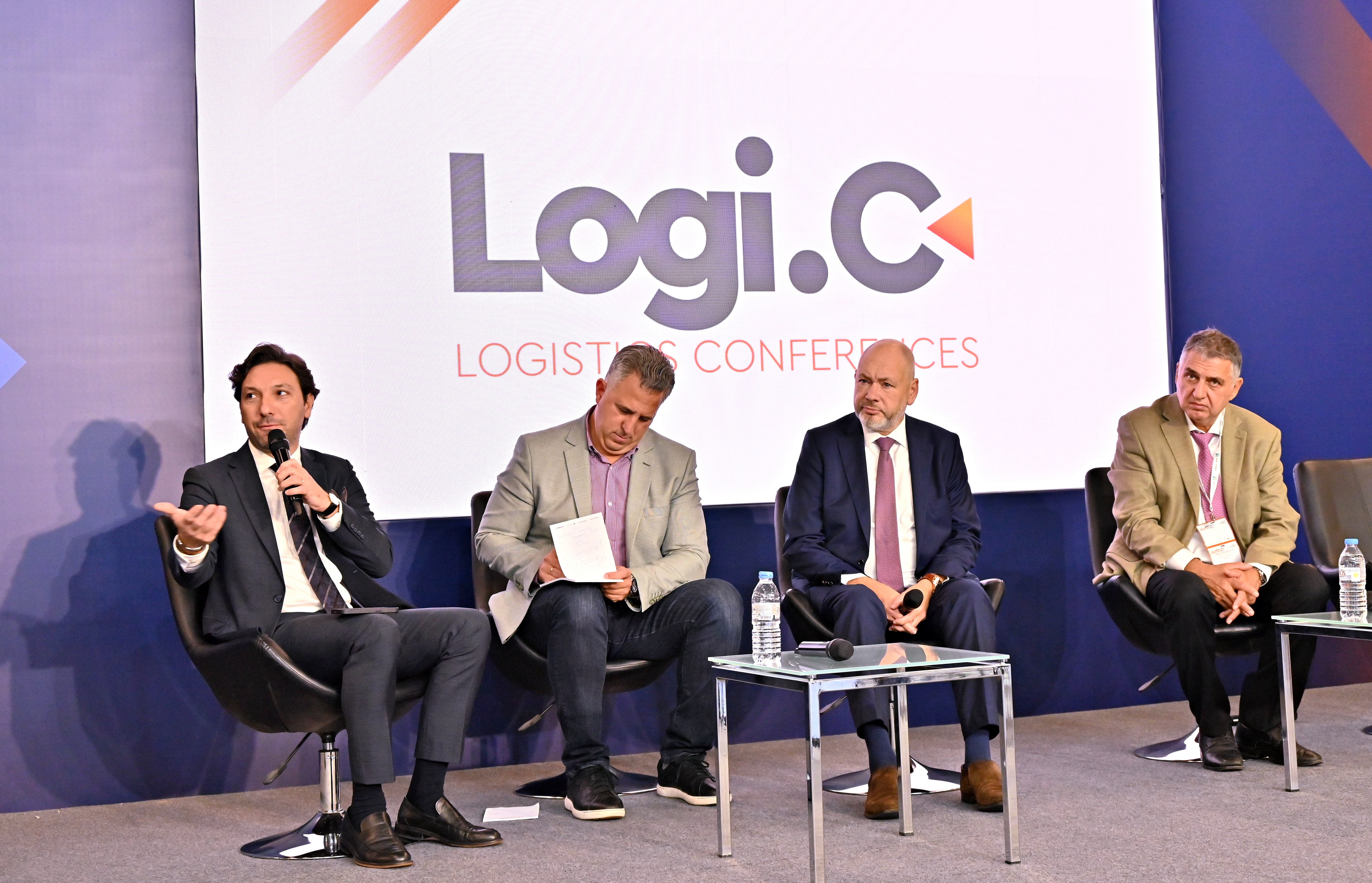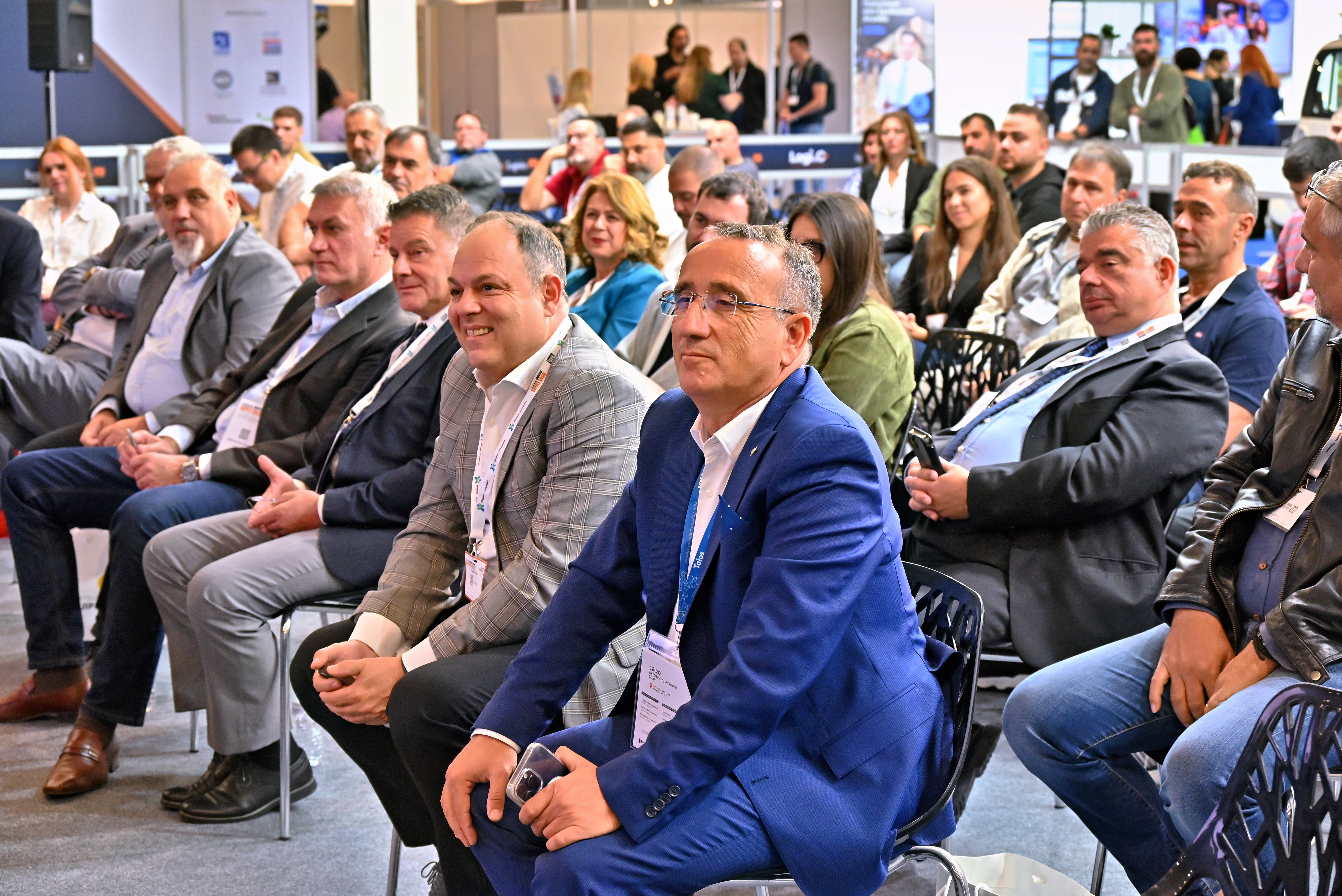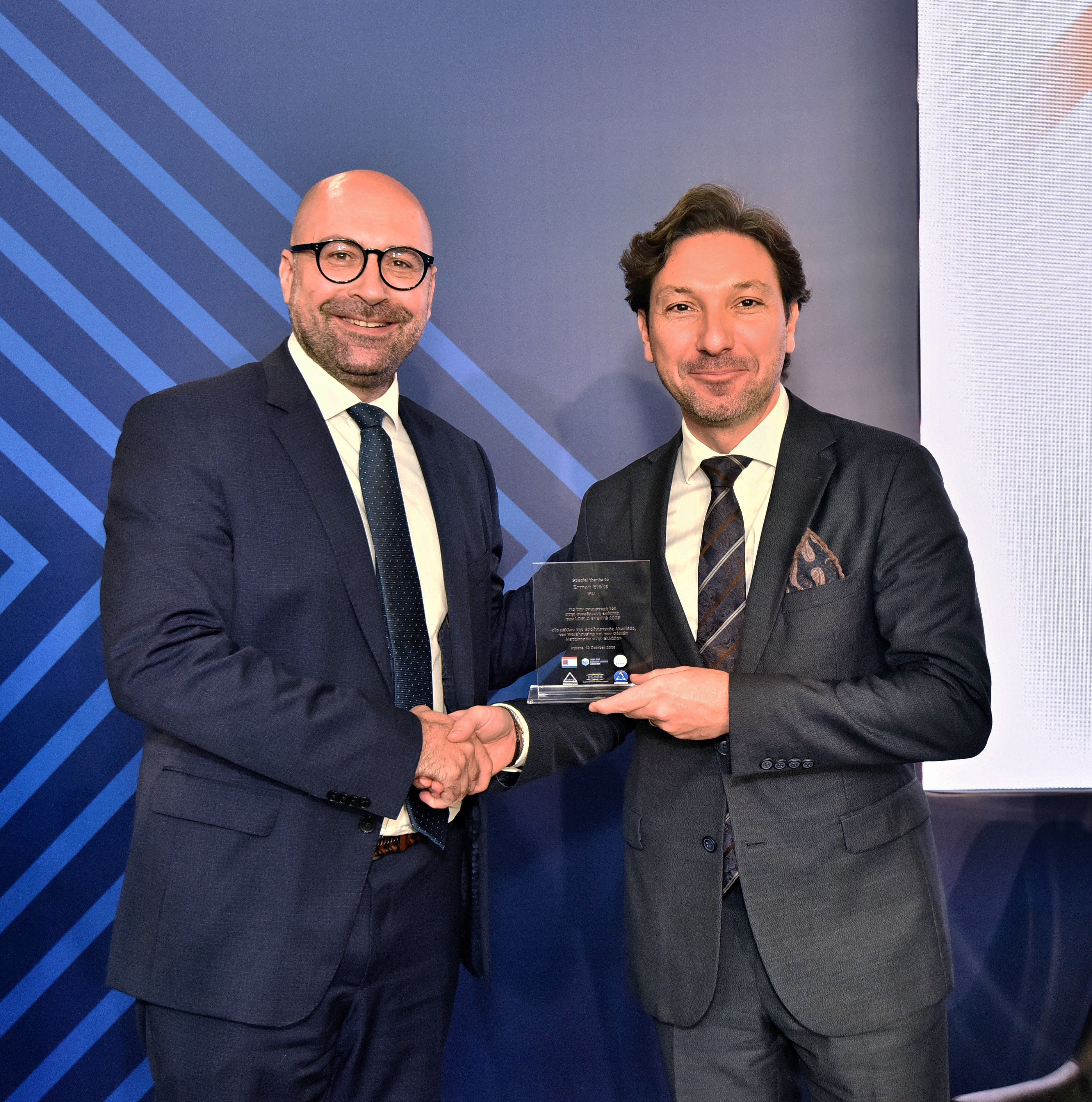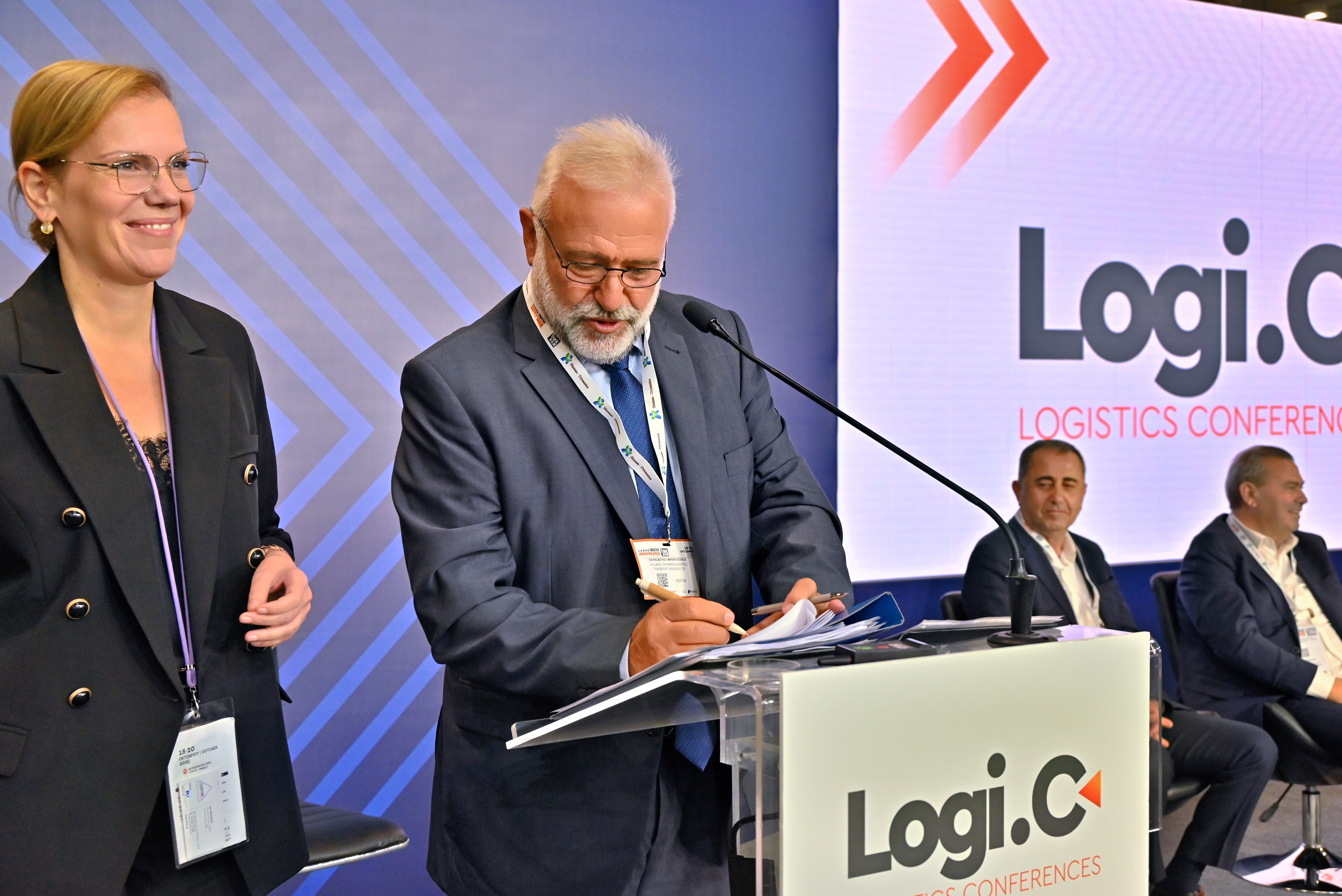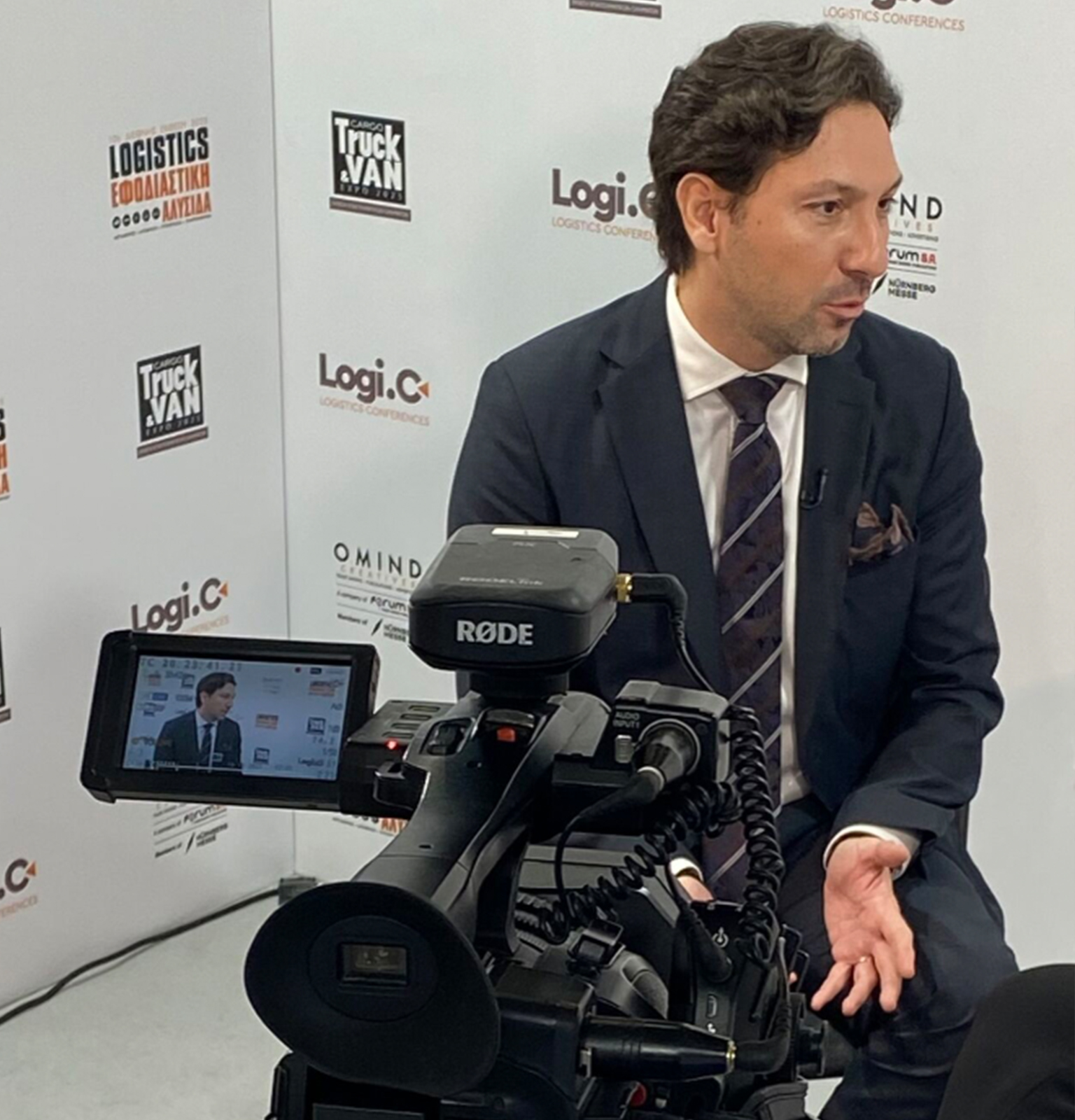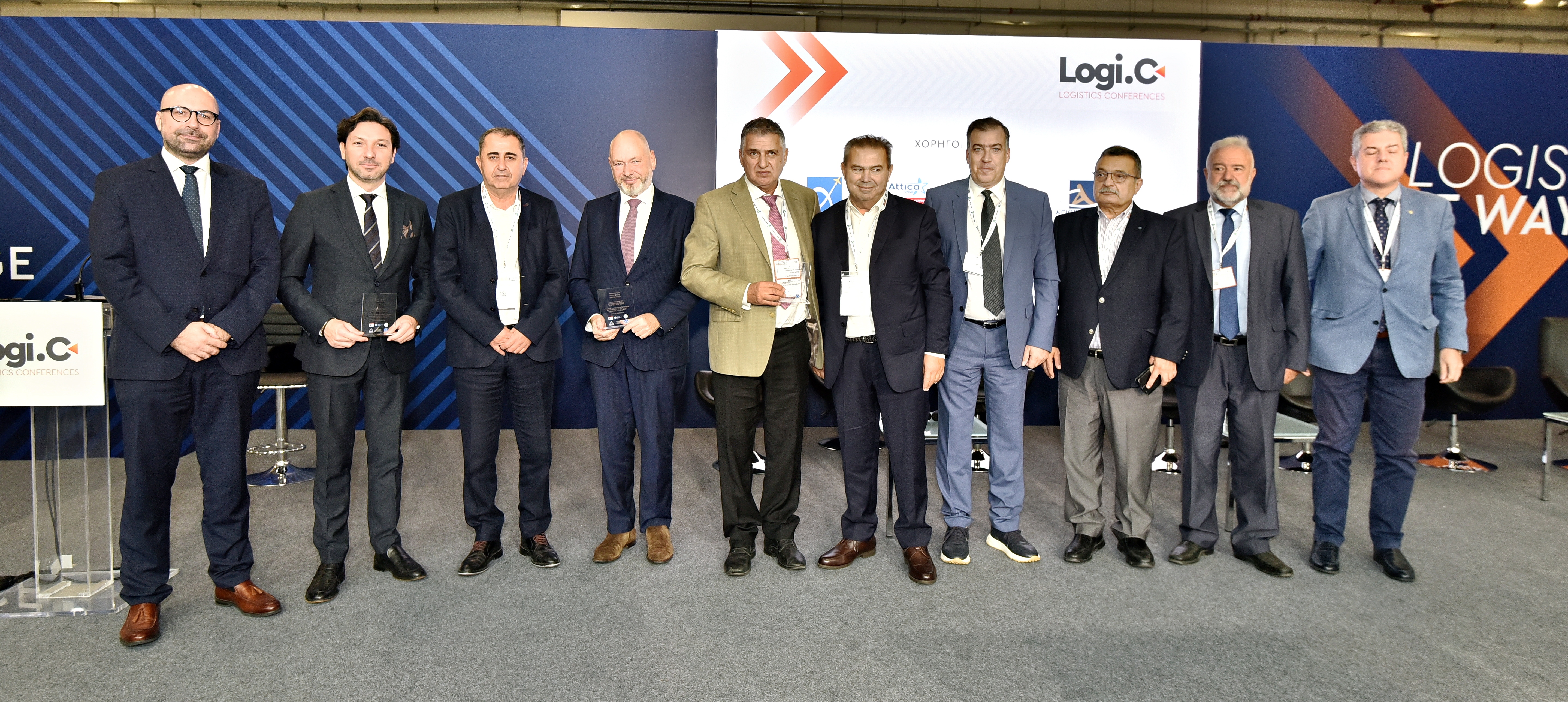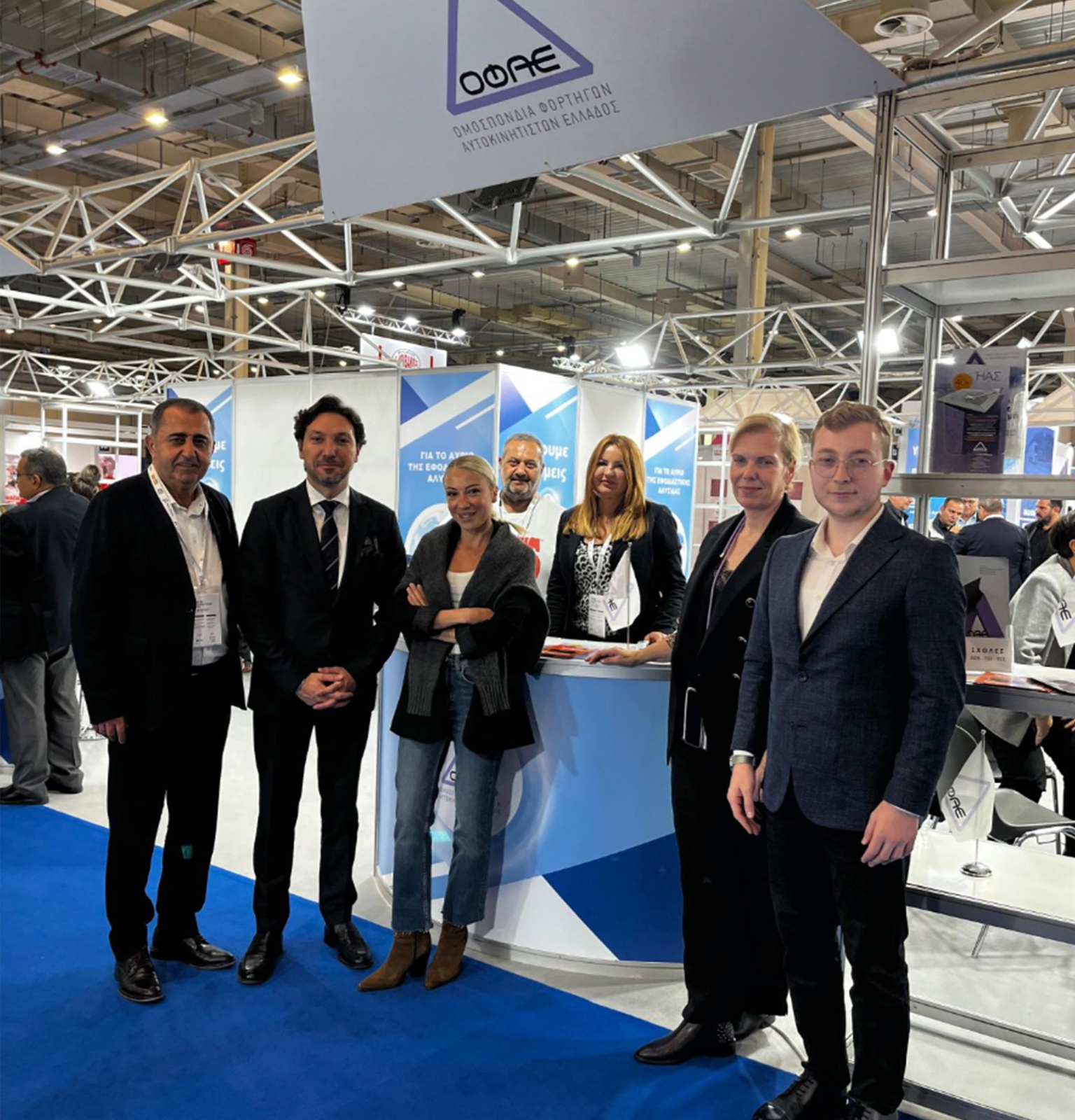What’s the way forward? IRU unpacked the keys to making trade faster and greener – and doing so sustainably – at a major Greek industry event.
Co-organised by Greece’s leading logistics and transport associations, including IRU member OFAE, the “2025 LOGI.C Logistics Conference” brought together European policymakers, logistics leaders, and transport organisations.
Participants exchanged views on how national and European stakeholders can “join forces for the future of supply chains” and signed a Joint Resolution calling on Greek authorities to:
- Strengthen the competitiveness and synergies of the logistics sector
- Develop modern infrastructure, combined transport networks, and freight centres
- Accelerate a sustainable green transition
The resolution also highlights the need for digitalisation, innovation and skills development to ensure a more resilient and efficient supply chain ecosystem.
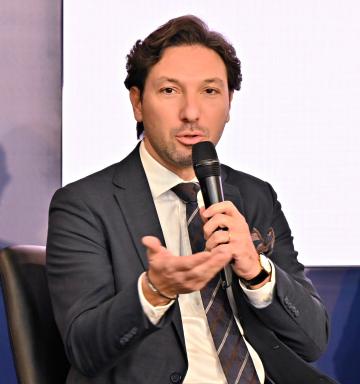
Erman Ereke, IRU’s General Delegate in Istanbul, joined the panel on “The Way Forward: European and National Perspectives on the Future of Supply Chains.”
He underlined IRU’s Green Compact: the commercial road transport industry’s collective commitment and plan to decarbonise by 2050. The Green Compact offers a realistic, business-driven framework to cut emissions while ensuring competitiveness and efficiency across supply chains.
IRU Green Compact research has shown that a dual focus on rolling out alternative fuels pragmatically and implementing logistics efficiency gains is the best way to decarbonise road transport. About half of the reductions in CO₂ emissions will come from efficiency gains and the other half from alternative fuels.
“Road transport cannot be decarbonised without coordinated policies, financial support, and infrastructure readiness, especially for SMEs, the backbone of our sector,” said Erman Ereke. “A fair transition mechanism must factor in the economic realities of operators and the diversity of transport networks.”
Erman Ereke also drew attention to the growing operational pressures operators are facing, including high fuel costs, driver shortages, and complex regulatory frameworks.
“We need administrative procedures and harmonised digital solutions across Europe to help operators maintain competitiveness while transitioning to greener technologies,” said Erman Ereke.
Highlighting IRU’s long-standing management of the global TIR transit system, Erman Ereke stressed how it continues to play a vital role in facilitating sustainable cross-border trade.
While reducing border transit times by up to 92% and lowering transport costs by up to 50%, TIR also supports multimodal operations and contributes directly to faster and greener trade along key international corridors.
IRU will continue to work closely with its Greek and European partners to deliver innovative, practical and scalable solutions that foster a sustainable and connected transport network.

